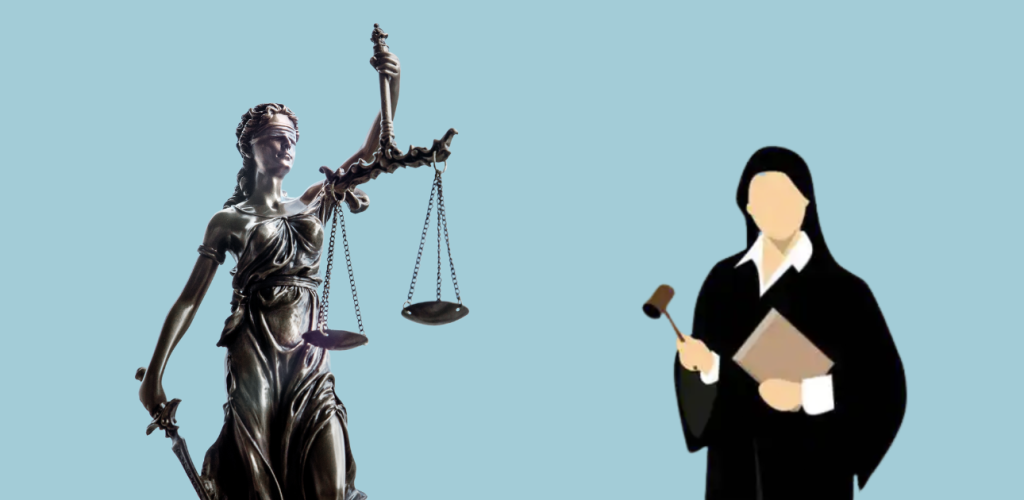Can the judiciary be independent when politicians appoint its members? This article will attempt to answer that question. President Hakainde Hichilema has suspended three judges in Zambia following the Judicial Complaints Commission (JCC) recommendation to investigate the justices’ conduct.
This furore has drawn partisan views in Zambia about the independence of the judiciary, which is at the mercy of politicians who hold sway in their appointment and disciplinary powers.
In 2016, a presidential petition lodged by the then-presidential contestant, Mr. Hakainde Hichilema, was thrown out, paving the way for the then-president, Edgar Lungu, to seek a third term.
The Zambian highest Court defined “presidential term” and concluded that other constitutional succession provisions had permitted two terms to be extended if the serving president had succeeded the previous one and had served less than three years.
According to the court, a president would thus normally serve a maximum of 10 years, but a full term of office could vary between eight and 13 years, depending on the circumstances.
READ RELATED: AN INSIDER’S PERSPECTIVE I Judicial Reforms Ignored: The Broken System Fueling Tanzania’s Justice Crisis
Though this was the court’s main work in this matter, the judges also issued a stiff warning to people not to “attack” judges “related to matters before the court,” adding that if they did so, they could face serious consequences.
This situation echoes our constitutional circumstances, albeit with an exciting twist, which I will not indulge in now lest I veer away from the main topic.
It is a matter that needs another space and time. One must remember that the then-president, Lungu, succeeded President Michael Sata, who died in office on 28 October 2014.
President Sata served Zambia from 28 September 2011 to 28 October 2014, a total of barely two years and one month.
Mathematically speaking, when President Lungu was sworn in on 13 September 2016 but also took a similar oath on 25 January 2016, the period in question was less than three years, implying he was within his rights to seek a third term.
ALSO, READ Tanzanian Media on Life Support: Public Accountability at Risk?
Lungu controversially won the election, garnering 50.35% of the total vote. Critics rushed unsuccessfully to court to block his inauguration.
He took the first oath before the petition was determined, maybe to discourage legal assault or to preserve continuity, but members of the opposition claimed it was aimed at intimidating the judiciary and instilling an aura of inevitability.
Lungu went on to serve two presidential terms. When he declared that the constitution permitted him to seek a third term in light of other succession provisions that considered a presidential term to be more than three years, the main opposition party went to court to bar President Lungu from seeking a third term.
However, they were shocked, appalled, and dismayed to see their case thrown out for lack of merit. So, President Lungu ran for a third term but lost to the incumbent president, Hakainde Hichilema.
Assuming the Zambian highest Court interpreted the succession provisions correctly, President Lungu, who has declared an intention to seek a final third presidential term, is doing the right thing.
But since the earlier decision to allow him to seek the third term was not accepted by the then opposition now in power, legal assaults are expected.
Surprisingly, the current president believes the legal interpretation was wrong, so he does not trust three justices who contributed to the 2016 petition to falter.
So, one citizen went to the JCC to seek the removal of those justices, and the JCC, which previously had rejected similar requests, has now budged, clearing the way for those justices’ suspension pending further investigation of their conduct.
Most activists in Zambia agree that their judiciary is highly politicised, and court decisions depend not on the correct positions of the law but strewn in the affiliations. Had this private citizen not gone to the JCC meant the three justices would not have faced an interdiction.
But it also raises another question: whether the highest Court in Zambia can re-hear an appeal from its own ruling based on the same parties and the same issues of defining “presidential term limits.”
ALSO, READ Could Mexican-Style Judicial Reforms Be the Key to Tanzania’s Justice?
Obviously, they cannot do that unless political duress prods them to. How can they take a second bite on the same provisions of the presidential succession clauses that they had already decided rightly or otherwise without abusing the judicial process?
If they take a case, some will deem the judiciary partial in favour of President Hakainde Hichilema. If they refuse to take it, it will clear Lungu to seek a third term under the guise of the previous interpretation of presidential succession clauses already deemed as the law of the land. The president and his allies will feel hard done since President Lungu is the last man they want to face in the next election.
Zambia has a Supreme Court, so the president cannot create another layer of a superior court that can hear an appeal from the Supreme Court’s decision in favour of Lungu’s third and final stab at the presidential stakes.
It is worth remembering that without those three judges, the Supreme Court of Zambia still has the prerequisite quorum to hear and determine the matter.
The Supreme Court of Zambia consists of the Chief Justice, the Deputy Chief Justice, and 11 Supreme Court Judges. It has a total of 13 members, so having three fewer does not disrupt the prerequisite quorum but still interferes with their work.
While the quorum is available, the jurisdiction to re-hear an appeal from their own decision regarding the same parties bearing the same subject matter is tenuous.
Since political interference is rife in judicial work, a movement is gaining momentum on how to involve citizen participation in hiring and disciplinary matters of judiciary members. It is a complex matter demanding exclusive attention sometime soon.

